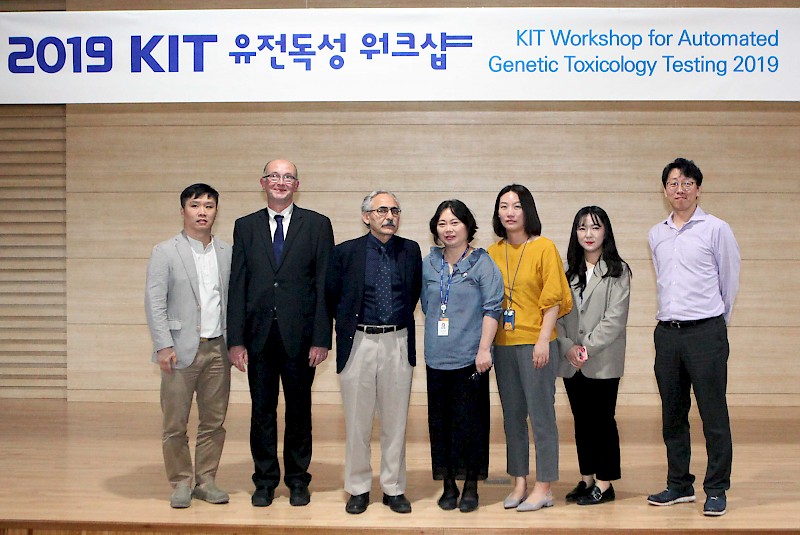Workshop on Automated Genetic Toxicology at KIT, Daejeong, Korea

The Korea Institute of Toxicology (KIT) is a government-funded research institute to evaluate the safety of medicine, bio-related products and chemicals such as agricultural pesticides, food additives and cosmetics, environmental toxicity and ecotoxicity. As a leading provider of non-clinical toxicology studies, KIT serves as a core infrastructure in the biotechnology industry. In May 2019, Dr. Seong-Hoon Park from KIT organized the first KIT Workshop for Automated Genetic Toxicology Testing. On this event, which was kindly supported by Mirax Corporation, local and overseas speakers summarized current proceedings in the automation of genetic toxicology test analysis.
Following the opening words by the President of KIT, Dr. Chang-Woo Song, Prof. Michael Fenech from the University of South Australia spoke about automation of the micronucleus tests in genetic toxicology. "The growing importance of the micronucleus test as a genetic toxicology method and its ability to reflect the influences of lifestyle and nutrition make automation a must for its transformation into a more cost-effective and robust technique for use by health professionals", Prof. Fenech said. "There are many new developments that ask for a scalable, reliable, and well calibrated automated analysis systems." "Standardization is a major asset of microscopy automation", Dr. Christian Schunck from MetaSystems supported this statement. "Only automated analysis in a well-defined environment allows for generating reliable and reproducible results." This can also be seen in the field of radiation bio-dosimetry, as Dr. Seong-Jae Jang from the Korea Institute of Radiological & Medical Sciences (KIRAMS) showed in his presentation. "Automatically generated data have the advantage of being a comparable standard", he said. "Therefore laboratories working with biological dosimetry can work together in large, international networks, generate synergies and share their work". As Dr. Seong-Hoon Park said in his presentation, his institute decided to use Metafer to automate both the in-vitro and the in-vivo micronucleus tests. "With this move we went the logical next step towards a high-throughput GLP compliant toxicology unit and this is called SMART-GLP", he said.










